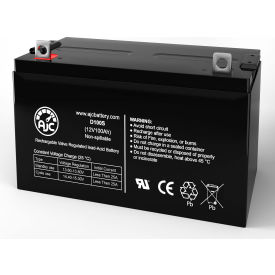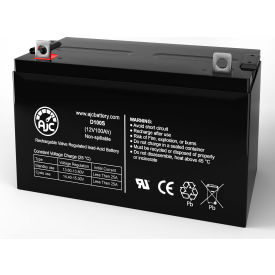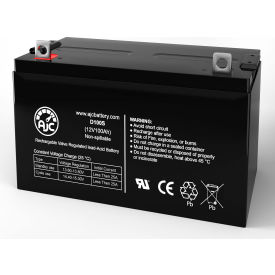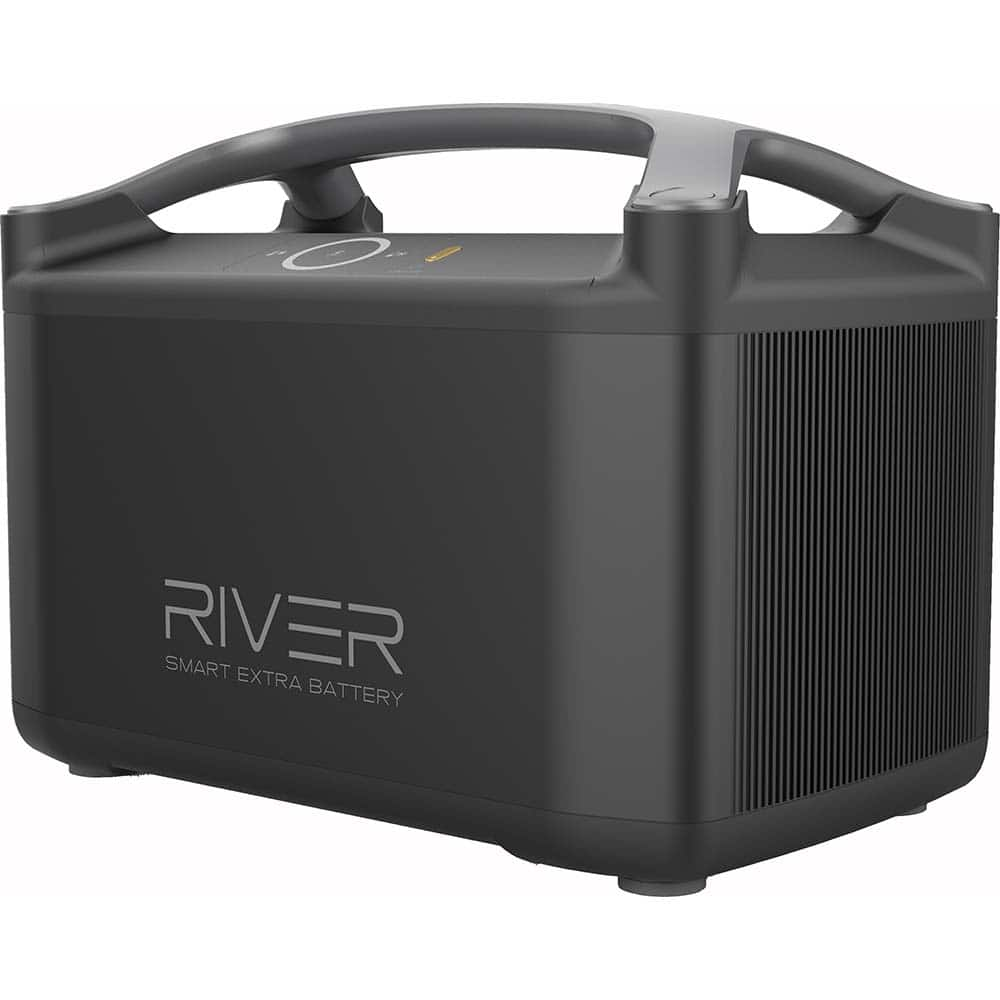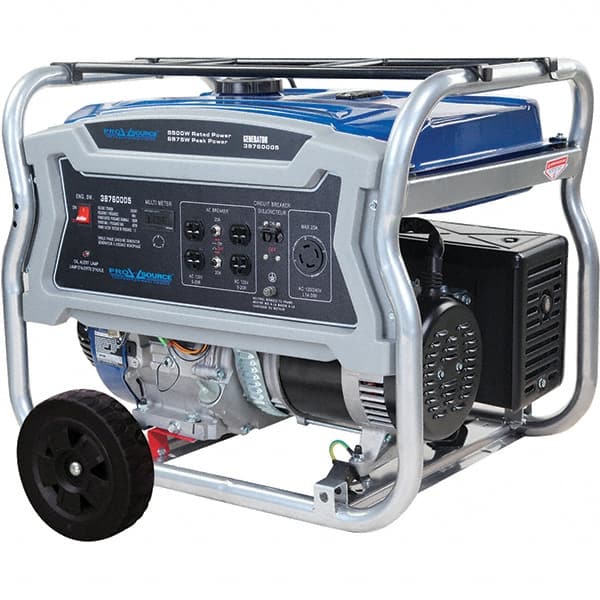Power Up Your Work: Discover the Best Portable Generators for Every Professional Need

Overview
Explore the essential guide to portable power solutions for professionals. This comprehensive overview covers the types of generators available, their applications, and the crucial factors to consider when choosing a generator for your needs. Discover how to enhance your operational capabilities with the right portable power setup.
1. Types of Portable Generators
2. Selecting the Right Generator for Your Needs
3. Essential Accessories for Portable Generators
4. Safety Tips for Using Portable Generators
5. Case Studies: How Professionals are Using Portable Power
1. Types of Portable Generators
A. Conventional Generators
These are the most common types of generators, suitable for various applications from construction sites to outdoor events. They typically run on gasoline, diesel, or propane.
- Product Recommendation: Browse GoVets' selection of Conventional Generators for reliable power solutions.
B. Inverter Generators
Inverter generators provide cleaner power for sensitive electronic devices. They are quieter and more efficient, making them ideal for use in residential areas or for outdoor recreational activities.
- Product Recommendation: Check out Inverter Generators on GoVets for efficient and stable power delivery.
C. Solar-Powered Generators
For those looking for an eco-friendly power solution, solar-powered generators offer a renewable alternative. They are particularly useful in remote locations without access to traditional power sources.
- Product Recommendation: Explore Solar-Powered Generators at GoVets for a clean energy option.
-
Eco-FloSpecial Price $1442.29 Regular Price $2534.83This product is sold in increments of 1
-
Battery Clerk LlcSpecial Price $374.29This product is sold in increments of 1
-
Battery Clerk LlcSpecial Price $374.29This product is sold in increments of 1
-
Battery Clerk LlcSpecial Price $374.29This product is sold in increments of 1
2. Selecting the Right Generator for Your Needs
2. Selecting the Right Generator for Your Needs
Choosing the appropriate portable generator is crucial for ensuring it meets your energy requirements efficiently and safely. Here’s how to select the right generator based on various essential factors:
Assessing Power Needs
- Calculate Required Wattage: Determine the total wattage of all devices and equipment you plan to run simultaneously. This calculation will guide you in selecting a generator with adequate output to handle your load without the risk of overloading.
- Starting vs. Running Watts: Consider that some appliances, particularly those with motors, require higher watts at startup than during running. Ensure the generator can handle the initial surge required.
Environmental Considerations
- Operating Conditions: Consider the typical environmental conditions where the generator will be used. For instance, if you're using it primarily in cold weather, you’ll need a generator that operates reliably in lower temperatures.
- Noise Restrictions: If the generator will be used in residential areas or during public events, opt for a model designed to operate quietly to comply with noise regulations and maintain comfort.
Fuel Type Preference
- Fuel Availability: Choose a generator based on the type of fuel that is readily available and cost-effective for you. Common fuel types include gasoline, diesel, propane, and natural gas.
- Fuel Efficiency and Storage: Consider the fuel efficiency of the generator and the storage life of the fuel type. For example, diesel generators are typically more fuel-efficient than gasoline, but propane can be stored for longer periods without degradation.
3. Essential Accessories for Portable Generators
To enhance the functionality and lifespan of your portable generator, incorporating a few critical accessories is recommended. These accessories not only improve efficiency but also ensure safety and longevity of your equipment.
A. Transfer Switches
- Purpose and Safety: A transfer switch is crucial for safely connecting your generator to your home or business power system. It allows for a smooth and safe transition from utility power to generator power during outages, avoiding the dangers associated with back-feeding.
- Installation: Installing a transfer switch should be done by a qualified electrician to ensure it complies with local electrical codes and safety standards.
B. Maintenance Kits
- Regular Maintenance: Keeping your generator in top condition is essential for reliable performance. Maintenance kits typically include oil, air, and fuel filters, as well as spark plugs and other necessary tools for routine upkeep.
- Preventive Care: Regular maintenance not only extends the lifespan of the generator but also ensures it runs efficiently and safely every time you need it.
C. Covers and Portable Fuel Cans
- Generator Covers: Protect your generator from the elements when not in use with a cover. This protection helps prevent rust and keeps the generator clean, reducing the potential for operational issues.
- Portable Fuel Cans: Having extra fuel on hand is essential, especially in extended outages or remote usage scenarios. Use approved portable fuel cans for safe and convenient transportation and storage of extra fuel.
Incorporating these accessories into your portable generator setup ensures that you can rely on your unit for safe and effective power whenever and wherever it’s needed. Whether powering critical home appliances during an outage or providing energy for tools on a job site, these enhancements are invaluable for maximizing the potential of your portable power solution.
4. Safety Tips for Using Portable Generators
Proper usage and maintenance of portable generators are essential to ensuring safety and efficiency. Here are detailed safety tips for operating portable generators to minimize risks and maximize their utility:
1. Operating Environment
- Outdoor Use: Generators produce carbon monoxide, a deadly, odorless gas. Always operate your generator outdoors, well away from any enclosed spaces to prevent carbon monoxide poisoning. Never run a generator inside homes, garages, basements, crawl spaces, or other partially enclosed areas, even with ventilation.
- Clearance: Ensure that your generator has at least three to four feet of clear space on all sides and above to allow for adequate ventilation and cooling. This space also reduces the risk of fires.
2. Placement and Positioning
- Distance from Buildings: Place generators at least 20 feet away from buildings, windows, doors, and vents to avoid exhaust fumes entering the building. The exhaust should always point away from occupied spaces to prevent exposure to carbon monoxide.
- Dry Operation: Operate the generator on a dry surface under an open, canopy-like structure. Avoid using generators in wet conditions, and never touch the generator with wet hands to prevent electrocution.
3. Fuel Handling and Storage
- Fuel Safety: Always turn the generator off and let it cool before refueling. Gasoline spilled on hot engine parts could ignite, causing a fire.
- Proper Storage: Store fuel for the generator in an approved safety can outdoors, away from occupied buildings. Use the type of fuel recommended by the generator manufacturer to ensure efficient operation and avoid damage to the engine.
4. Maintenance and Inspection
- Regular Checks: Before using the generator, inspect it for any signs of wear or damage. Check oil and coolant levels every time you use it, as low levels can lead to engine overheating and failure.
- Routine Maintenance: Follow the manufacturer’s guidelines for routine maintenance, which include regular oil changes, filter replacements, and general servicing. Keeping the generator well-maintained ensures it operates safely when you need it.
5. Electrical Safety
- Correct Loading: Ensure that the generator is not overloaded. Overloading a generator can cause it to overheat, leading to potential fires or failure. Refer to the manufacturer’s manual to understand the capacity and allocate loads accordingly.
- Use Heavy-Duty Extension Cords: Use heavy-duty extension cords from the generator to the appliances. Ensure cords are free of cuts and the plugs have all three prongs, especially a grounding pin.
6. Noise and Vibration
- Ear Protection: Generators can be very noisy, posing risks to hearing over prolonged exposure. Use ear protection if you are operating or working near a generator.
- Secure Positioning: Place the generator on a stable surface where it is not likely to move or tip over. Vibration pads can also be used to minimize movement and reduce the noise.
Following these safety tips will help ensure that your use of portable generators is both safe and effective, protecting not only the equipment but also the health and safety of the operator and others nearby.
5. Case Studies: How Professionals are Using Portable Power
Portable generators have become indispensable tools across various industries, offering reliable power solutions that enhance operational capabilities in diverse environments. Below are detailed examples of how professionals use different types of portable generators:
A. Conventional Generators
Construction Sites: On construction sites, conventional generators power everything from electric saws to cement mixers. They provide the necessary robust power output for heavy-duty tools and equipment that require substantial energy, ensuring productivity is maintained even in remote sites without grid access.
Outdoor Festivals: Event organizers rely on conventional generators to power stages, lighting, and sound equipment at outdoor festivals. These generators must operate reliably for long hours to ensure events run smoothly, providing entertainment without interruptions.
Disaster Relief Efforts: In disaster-stricken areas where power outages are common, conventional generators are critical. They are used to operate medical equipment, refrigeration for medical supplies, and communication devices, helping relief teams provide essential services during emergencies.
B. Inverter Generators
Mobile Food Vendors: Inverter generators are ideal for mobile food vendors who need to power refrigerators, ovens, and lights without risking damage to sensitive electronics due to their stable and clean power output. They also benefit from the quiet operation of inverter generators, which is less disruptive for customers and vendors alike.
Photography and Film Production: Professionals in the film and photography industry use inverter generators for their quiet operation and ability to safely power cameras, computers, and other sensitive digital equipment on remote shoots, ensuring high-quality production values are maintained regardless of location.
Camping and RV Travel: Travel enthusiasts and campers use inverter generators to power appliances and charge devices in RVs without access to a power grid. The lightweight and fuel-efficient nature of inverter generators make them perfect companions for long trips into nature.
C. Solar-Powered Generators
Remote Research Stations: Researchers working in isolated environments, such as wildlife observation posts or meteorological stations, use solar-powered generators to minimize their ecological footprint while powering essential equipment like sensors, cameras, and communication devices.
Residential Backup Power: Homeowners increasingly adopt solar-powered generators as a backup power solution, especially in areas prone to natural disasters or frequent power outages. These generators provide a renewable and sustainable source of energy that can power critical home appliances during emergencies.
Eco-Tourism Facilities: Eco-resorts and lodges use solar-powered generators to align with their sustainable and environmentally friendly ethos. These generators power guest accommodations and communal areas, significantly reducing the facility’s reliance on fossil fuels and enhancing the guest experience by maintaining a low environmental impact.
Each of these use cases illustrates the versatility and essential nature of portable generators in modern professional activities. By choosing the appropriate type of generator, professionals can ensure they have the reliable and efficient power they need, tailored to their specific operational demands.
Conclusion and Call to Action
For professionals requiring reliable and flexible power solutions, GoVets offers a wide range of portable generators and accessories to meet any demand. Visit our Portable Power Solutions page to find the ideal setup for your needs and explore more power generators and supplies below.
-
Eco-FloSpecial Price $1442.29 Regular Price $2534.83This product is sold in increments of 1
-
Eco-FloSpecial Price $3443.49 Regular Price $6437.5This product is sold in increments of 1
-
Eco-FloSpecial Price $647.99 Regular Price $1093.24This product is sold in increments of 1
-
MilwaukeeSpecial Price $33.49 Regular Price $63.84This product is sold in increments of 1
-
MakitaSpecial Price $173.79 Regular Price $301.83This product is sold in increments of 1
-
Power Generator Accessories, Generator Accessory Type: Maintenance Kit , For Use With: 7042 MPN:6485GeneracSpecial Price $40.79 Regular Price $70.51This product is sold in increments of 1
-
Value CollectionSpecial Price $984.29 Regular Price $1795.65This product is sold in increments of 1
-
Value CollectionSpecial Price $2480.99 Regular Price $4527.36This product is sold in increments of 1
-
Value CollectionSpecial Price $1650.49 Regular Price $2913.11This product is sold in increments of 1
-
Value CollectionSpecial Price $3806.29 Regular Price $7019.78This product is sold in increments of 1
-
Pro-SourceSpecial Price $762.79 Regular Price $1064.35This product is sold in increments of 1
-
Pro-SourceSpecial Price $869.49 Regular Price $1494.81This product is sold in increments of 1
- Veteran Spotlight
- GoVets Solutions
- Buying Guides & Projects
- Shopping Trends
- Prime Contractor Resources
- Business & Entrepreneur Resources
- GoVets Giving
- Online Security and Shopping Safety
- GoVets Top Selling Products
- Veteran Resources
- Product Spotlights
- Technology Updates
- GoVets Medallion Updates
- Government Updates
- GoVets Capabilities
- Press Releases
- Promotion Updates
- Industry Trends












